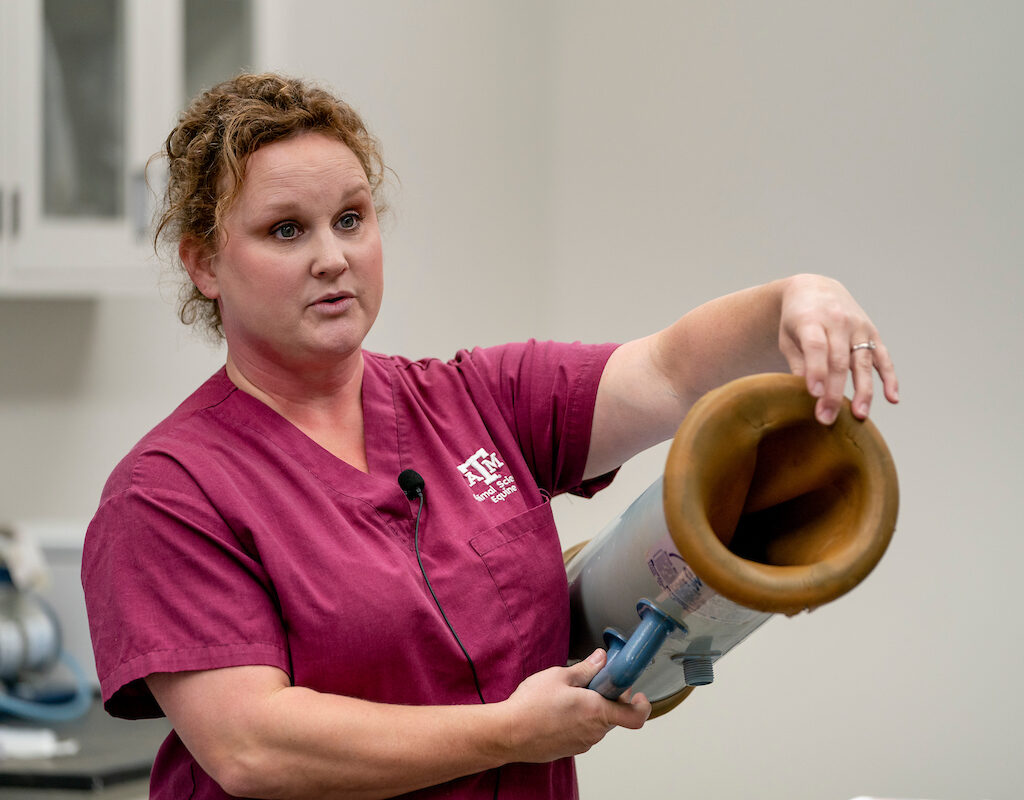Equine Reproductive Management Short Course
- Type
- Program

Topics:
Overview
Contact
7802 Turkey Creek Rd, College Station, TX 77845
The Texas A&M Equine Reproductive Management Short Course is designed for owners and breeding managers who want to learn the most efficient methods for ensuring program breeding success. The three-day course includes include classroom sessions on the anatomy and physiology of the mare and stallion, control of the estrous cycle, gestation and foaling, feeding the broodmare and young horse, and estrous cycle manipulation of mares. There are hands-on laboratory activities on a variety of equine reproductive topics as well as a broad range of topics useful to horse owners in any segment of the breeding industry.
Participation is limited to 12 individuals in order to ensure adequate time and animals for everyone to develop their skills. The registration fee includes lectures and laboratory sessions, lunch and refreshments each day, written materials, and a certificate of course completion.
More choices in Horses
- Course
Diseases in horses can spread rapidly, posing significant risks to herd health. This 1.5-hour self-paced course is designed to help horse owners and professionals identify, prevent, and manage common equine diseases. Covering both viral and bacterial infections, the course emphasizes the importance of routine vaccinations and effective biosecurity practices. By understanding how to spot and control these diseases, participants can reduce risks and ensure the well-being of their horses. Enroll today to protect your equine partners and enhance your knowledge.
- Course
A thorough online course, Training a Stallion to Collect on the Phantom, is intended for professionals, horse owners, and breeders who want to improve their abilities in teaching stallions to collect on the phantom.
- Course
In this course, horse owners and managers will learn about important topics related to managing the broodmare and foal.
- Publication
This manual explains how to evaluate horses in contests or as potential purchases.
Note: This is a paid downloadable publication. - Course
Master oral reason for horse judging competitions with our expert-led video from the 2023 national champion Texas A&M Horse Judging Team. This LearnNow video offers step-by-step instruction, expert tips, and real example sets. Perfect for youth and collegiate contestants and their coaches. Enroll today!
- Publication
Looking to breed your horses with artificial insemination (AI)? Our expert guide takes you step-by-step through the entire process. Learn the basics of AI and the physiology of a mare’s estrous cycle. Make horse breeding safer and healthier—download now!
